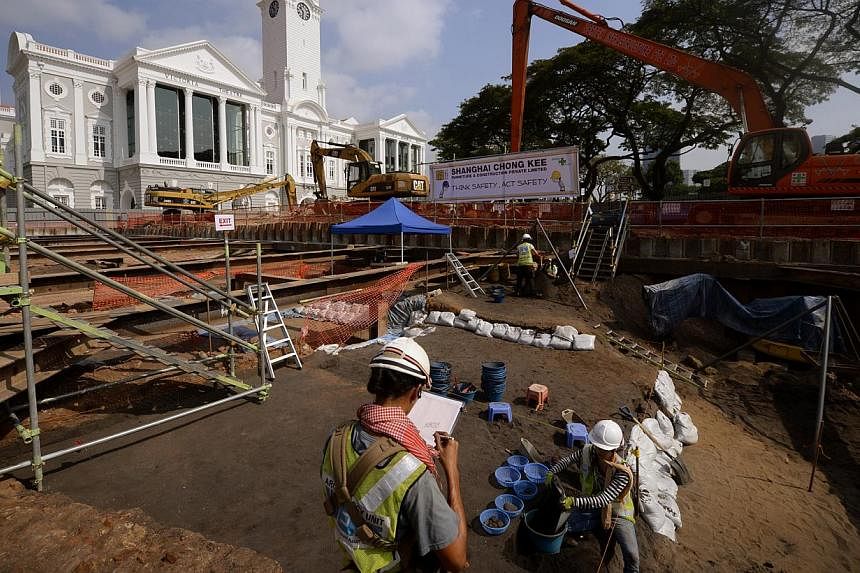Archaeological discoveries keep confirming that there was a thriving community here long before Stamford Raffles "created" Singapore in the 19th century. The latest evidence suggests that Temasek, or ancient Singapore, could have had an established government with a head ruler or chieftain way back in the late 14th century.
In unearthing this evidence during a dig at Empress Place, archaeologists have shed light on gaps in knowledge of the past. Singapore's history was supposed to have begun with the providential role of colonials who made it a functional landing post. The evidence suggests otherwise. In digging it up, the archaeological team has provided additional proof of Singapore's international provenance as well. It has discovered Chinese imperial-grade ceramics produced between 1375 and 1425. These had been bestowed by the Ming Dynasty emperor Hongwu on overseas leaders. Although Raffles undoubtedly gave Singapore a new lease of life as a commercial city, one that lasts to this day, he was not the originator of Singapore. To say that it had flourished before him does not detract from his importance but places it in historical perspective.
It is welcome that school textbooks recognise Singapore's longer place in time than used to be the case. It is necessary also for Singaporeans in general to absorb the rich implications of having a deeper past on which to fall back. This country will always lie at the crossroads of Asian and wider world history. The ability to tap and absorb diverse foreign resources, from the human to the material to the metaphysical, will continue to determine its domestic prospects. Raffles did lay the basis of a cosmopolitan city that is a nation-state today. However, the DNA of Singapore's international character precedes him. What history teaches is the value of integrating such influences wisely - then, now and always.

